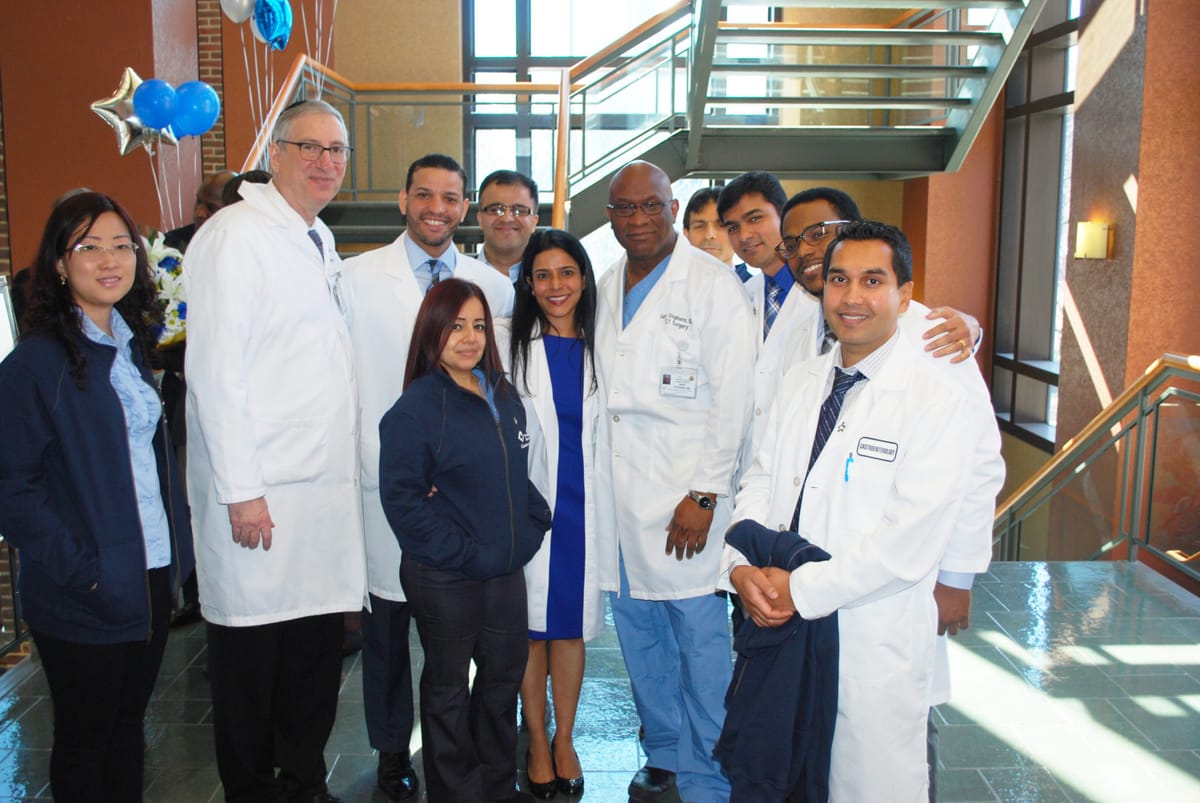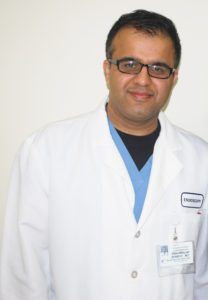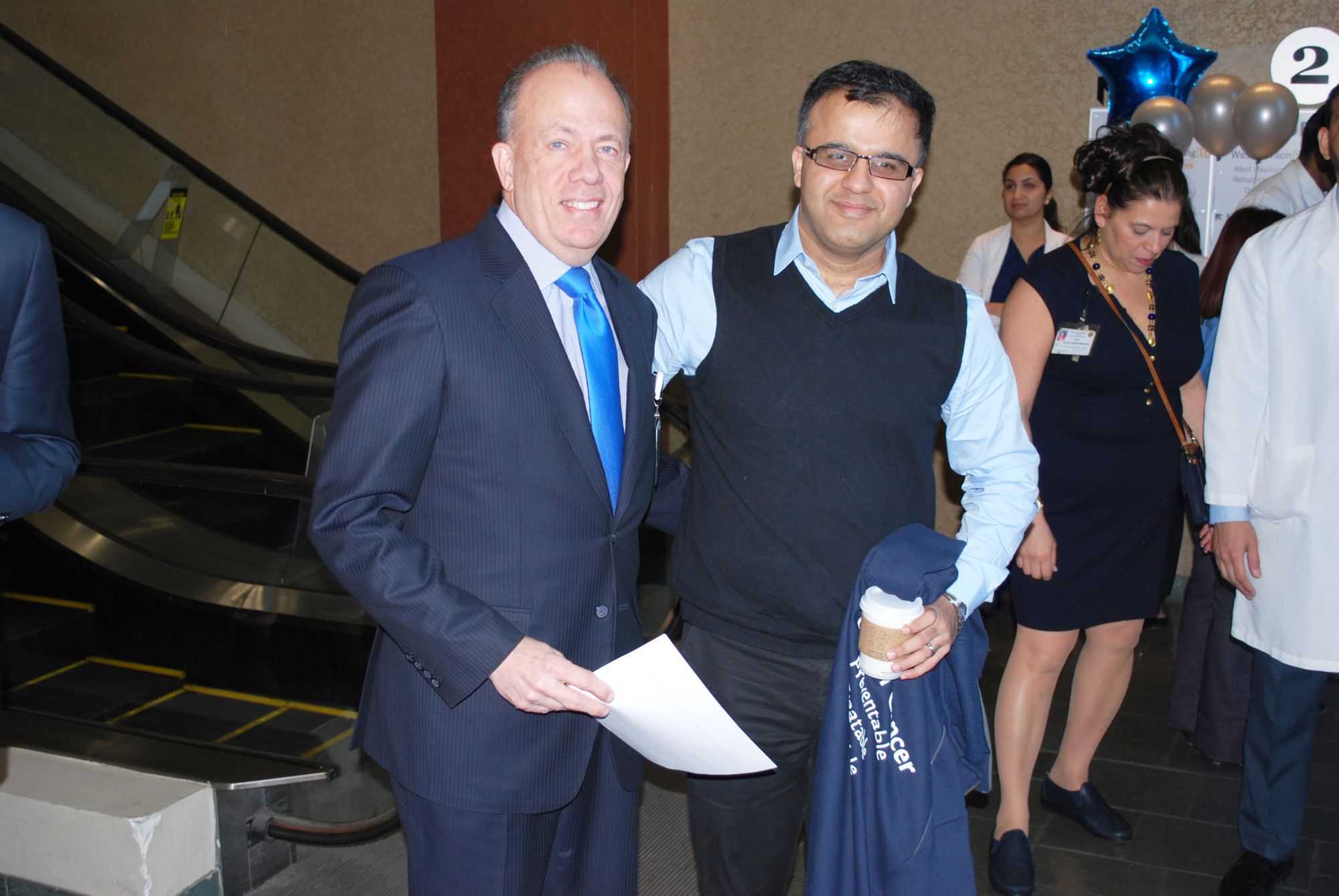Steps You Can Take To Prevent Colon Cancer

March is officially Colon Cancer Awareness Month and The Brooklyn Hospital Center would like you to get screened for the highly preventable and detectable disease.
According to the American Cancer Society, “most colorectal cancers begin as a growth called a polyp on the inner lining of the colon or rectum.” Dr. Ghulamullah Shahzad, a double board-certified member of TBHC’s Gastroenterology team, is a specialized interventionalist, allowing him to treat patients from the earliest, preventative stages, to the more complex or serious conditions. In an interview, he pointed out some startling statistics:
- Colorectal cancer is the 3rd-most-common cancer diagnosed in the U.S. and 50,000 will die in 2017. Overall, the lifetime risk of developing colorectal cancer is: about 1 in 21 (4.7%) for men and 1 in 23 (4.4%) for women.
- In 2017, there will be 100,000 new cases of colon cancer, and 39,910 new cases of rectal cancer.
- The incidence of colorectal cancer has been increasing in young population.

Dr. Shahzad points out, “Colorectal cancer is a preventable disease and early detection is possible. A colonoscopy is a life-saving test. It takes 15 minutes to perform, and the patient undergoes anesthesia where they don’t feel any pain or discomfort. They go home the same day and they can start on their regular diet.”
Flatbush’s diverse population is particularly at risk since African-Americans tend to have a higher incidence of colon polyps than other populations. Thus, the recommended age for screening is 45 among African Americans and 50 for the rest of the population. This applies to both male and female patients.
Dr. Shahzad says TBHC has several preliminary tests available, but colonoscopies are the most sensitive test, and warning signs – such as new-onset constipation, bleeding, anemia, or unexplained weight loss – are rare. “Most patients don’t have warning signs or symptoms; there’s a good chance to catch it early.”

And he emphasizes that there’s no reason to be nervous about the procedure. It’s routine – they perform over 3,000 colonoscopies every year. Patients will need to drink a liquid beforehand to clean out the colon so the doctor can see polyps clearly. If they detect any polyps, they can remove them during the procedure.
So if you fall into the age recommendation – or you are under 50 but have a family member with a history of polyps or colorectal cancer – TBHC recommends making an appointment to get screened. Dr. Shahzad emphasizes that they will work around your schedule to find an appropriate time for you to have the procedure.
He notes the CDC’s finding that more than 20 million people didn’t get screened last year according to age recommendations and 30% of people ages 50-75 didn’t get tested.
“In most patients, when we detect polyps and remove them,” he says, “they don’t develop cancer.”
Dr. Shahzad is now seeing patients at TBHC’s new Church Avenue location.

Church Avenue Family Health Center2244 Church AvenueBrooklyn, NY 11226(718) 826-5600This post was provided by The Brooklyn Hospital Center. If you would like to reach our readers, please contact us.



